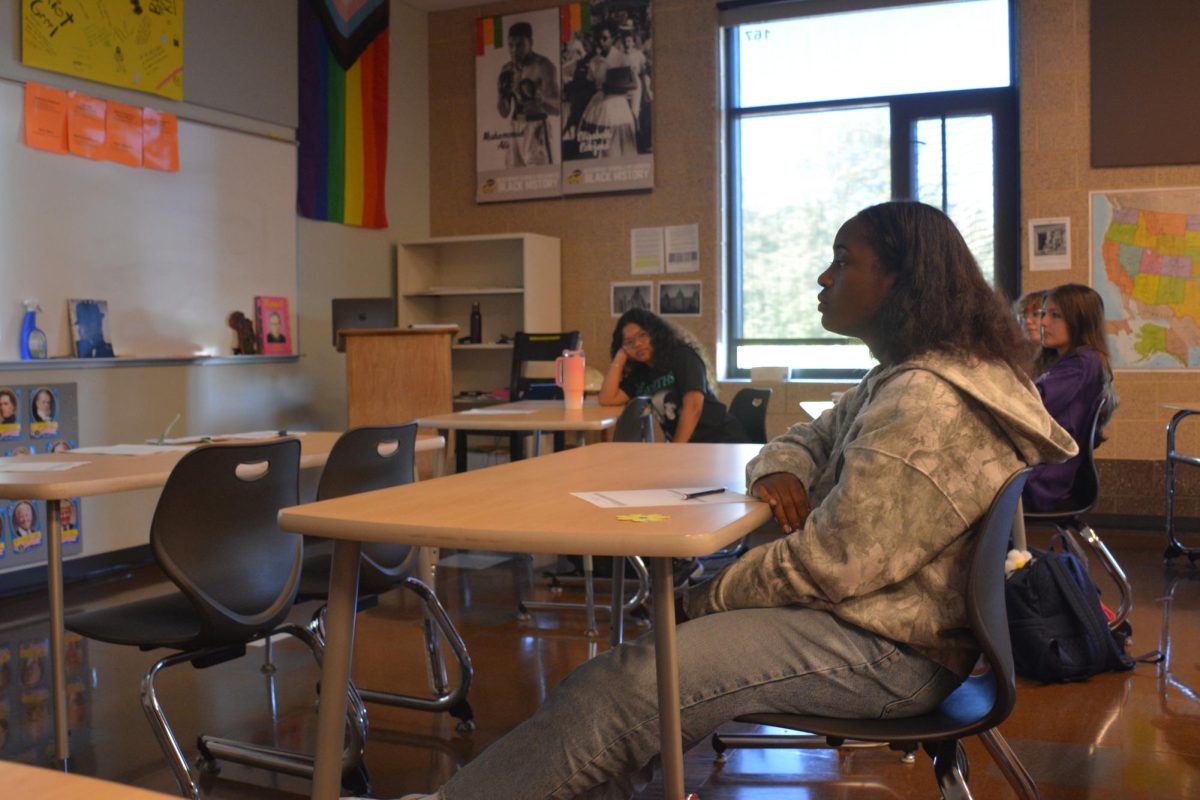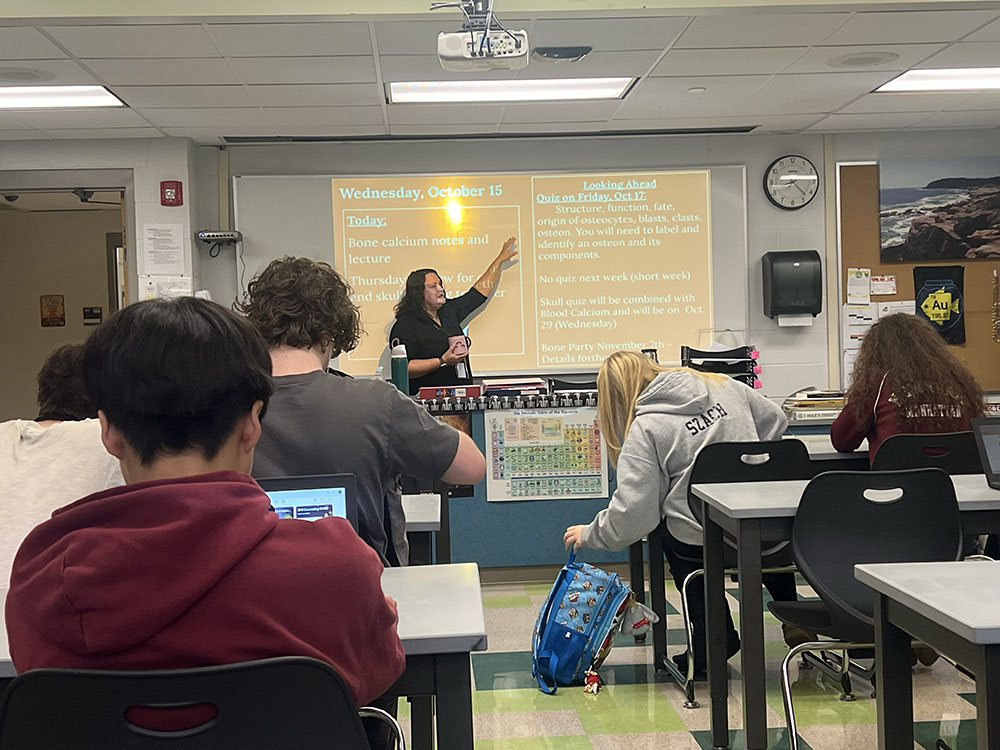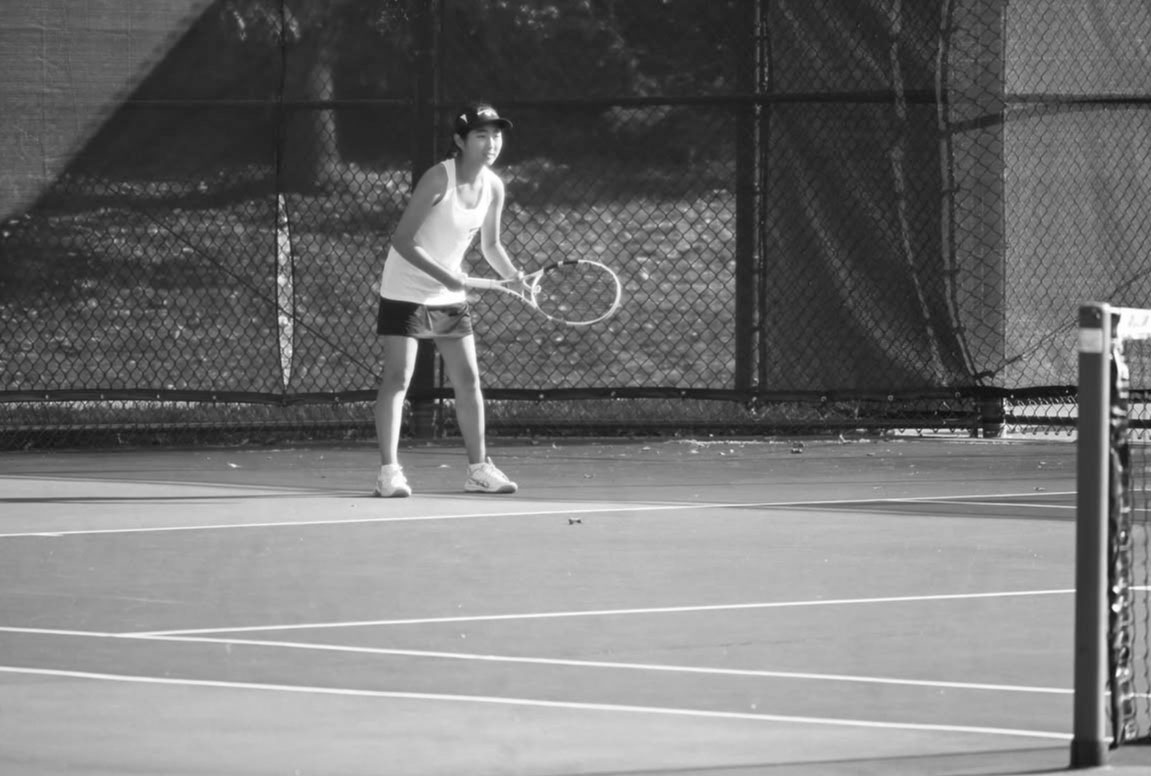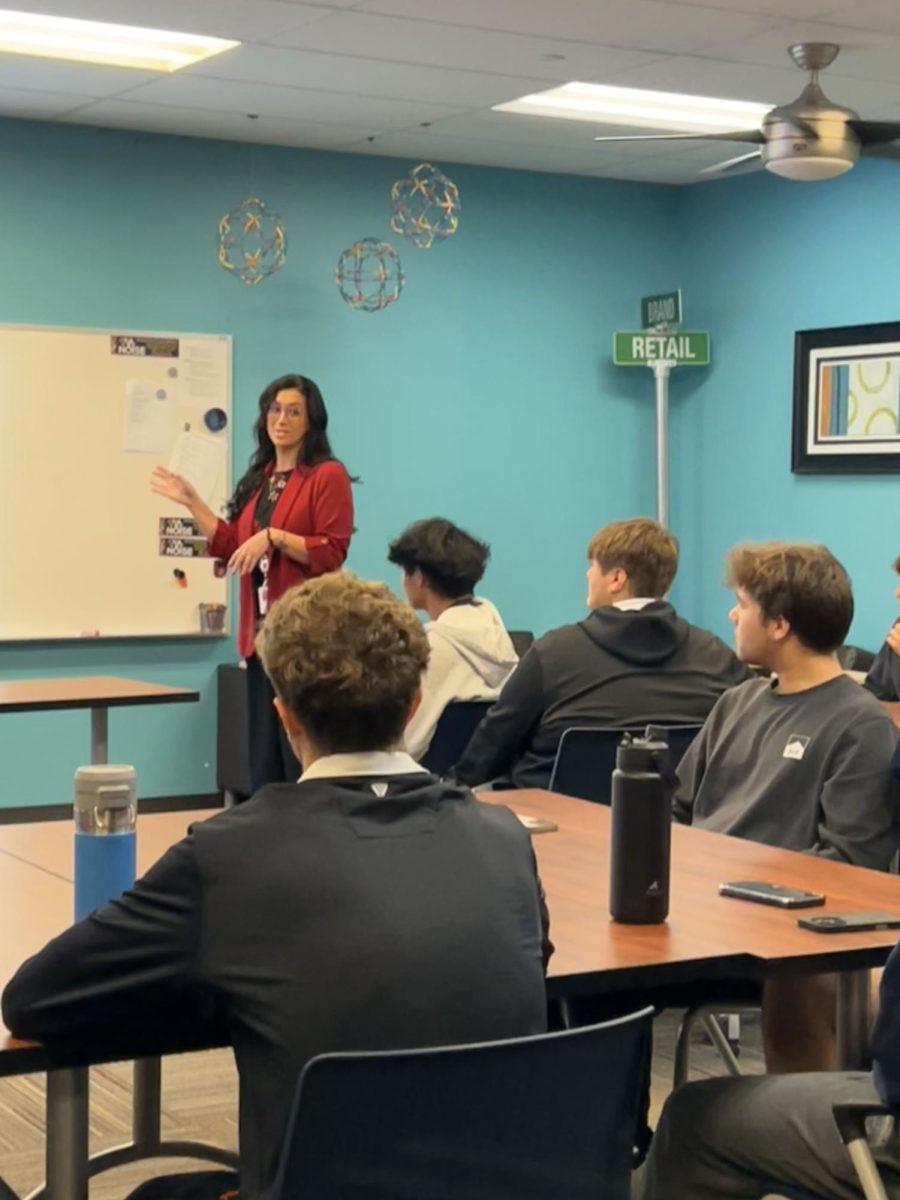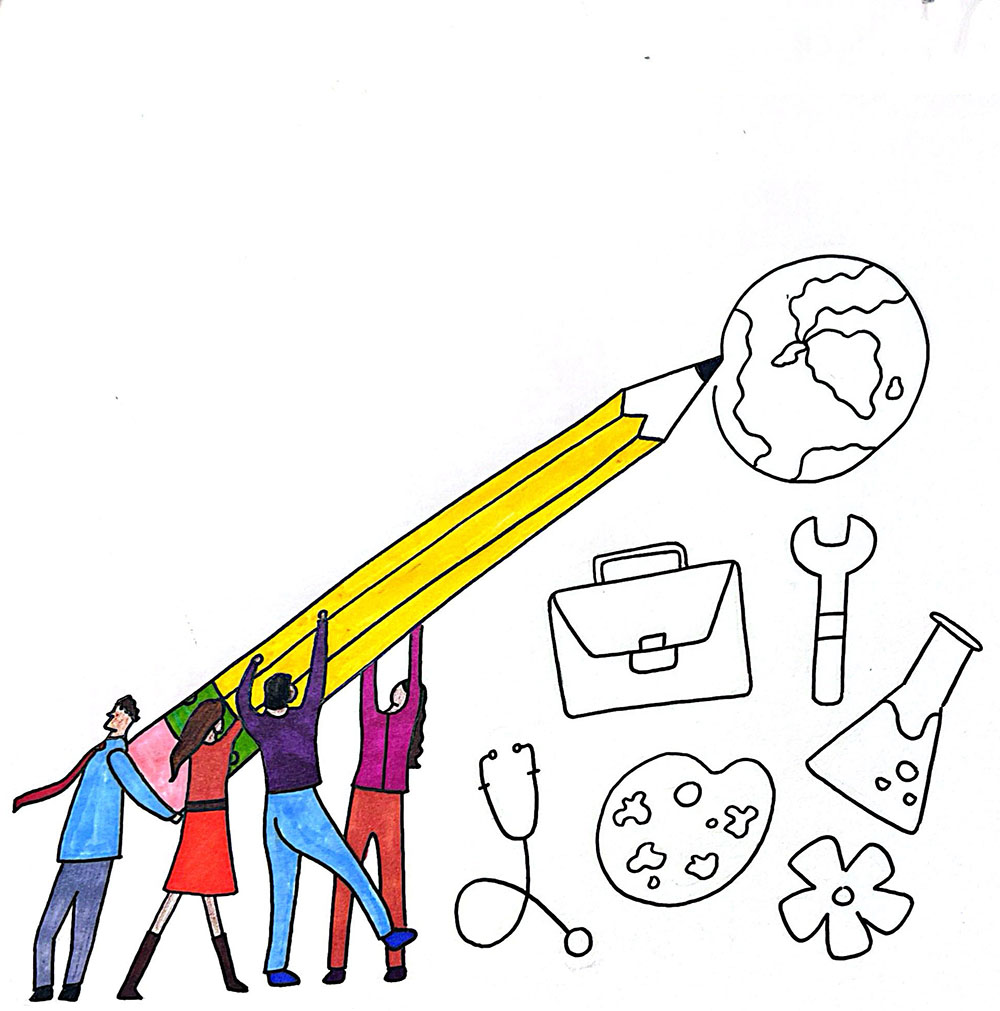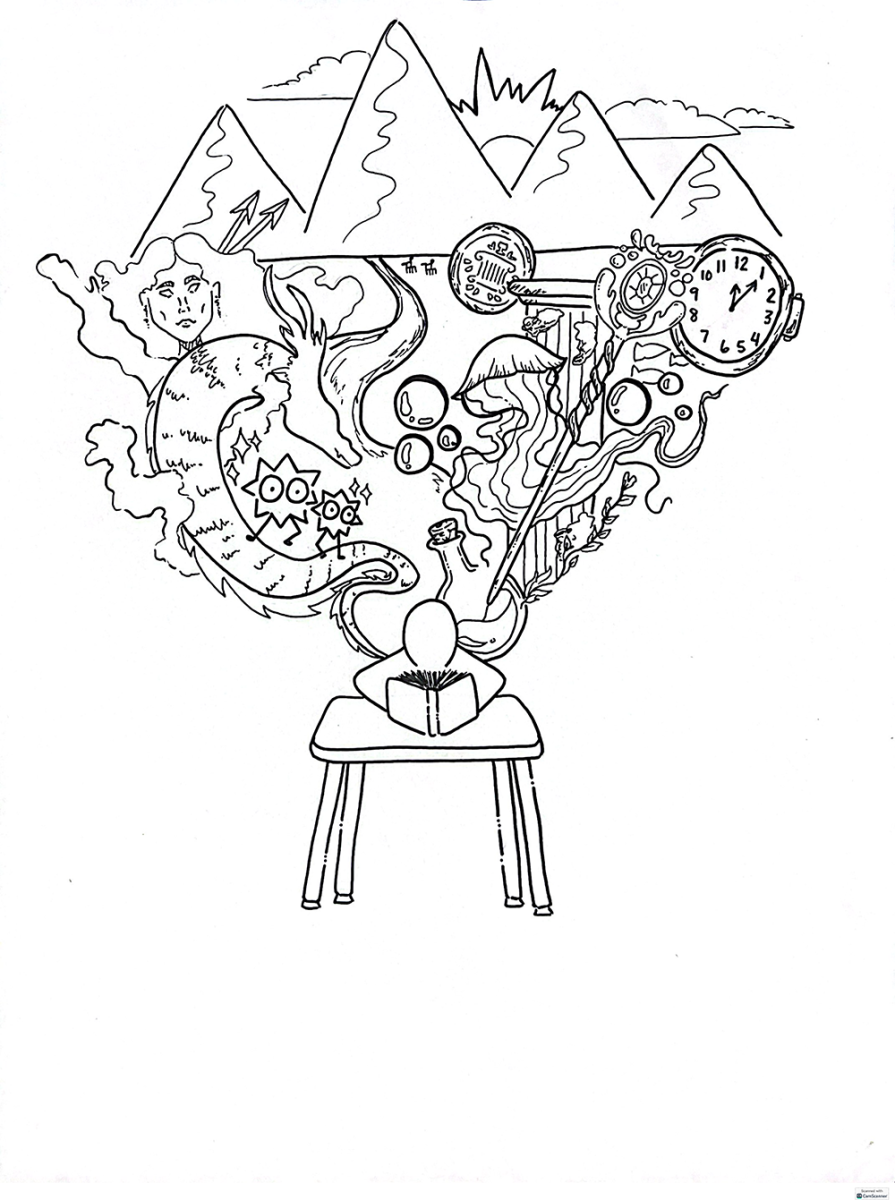The first SPIRIT event took place at BHS on Thursday, Sept. 12.
SPIRIT, or School-Student Problem Identification and Resolution of Issue Together, is a full-day program developed by the U.S. Justice Dept., focused on leadership skills.
A select group of approximately 58 students attended the program in order to identify and address potential conflicts in the school. There is not yet a set date for the next program, but they plan to meet once a month for the remainder of the school year.
“The program is student-driven and helps students develop problem solving skills, including issue identification and prioritization, decision-making and solution development,” the program website states.
Asst. Principal Aubrei Erkins thinks the program will improve school climate.
“I think it will positively affect the school with the students working together, to come up with different solutions for problems they see in the school,” she said. “The program brought together students who don’t usually work together or even see each other, and they were able to come together and just work.”
Erkins feels the first meeting was successful.
“[It] went really well, and the facilitators were awesome,” she said.
Senior Osita Ogor, one of the six student facilitators who led the program, helped to guide the conversations between people on opposite sides of the political spectrum.
“[We] had a two-hour training led by [a representative from the U.S. Attorney’s office] community relation service, [so we] were able to lead [our] groups well,” Ogor said.
Erkins was there to observe and mediate when necessary, and she gives credit to the students.
“The students ran the program,” she said.
Erkins felt the student mediators were very effective, particularly Ogor.
“Osita had a tough group and was able to bring together students with different views,” she said.
She was impressed by the way he handled conversations between two students on very different sides of the political spectrum.
“He had two students that were butting heads present together, and I told him that is genius,” she said.
This program is fairly new and Erkins is hopeful that it will have a positive impact.
“All the students stepped up,” she said.
Ogor had a positive outlook on the program as well.
“My goal is to bring people together and give each other a background on their differences,” he said.
Ogor has been a part of similar programs at Beachwood before and feels the SPIRIT program is a big step forward.
“Having a direct comparison to Many Cultures, One Bison, this is far better,” he said.
Ogor feels that SPIRIT could make a positive change at BHS. He feels that the more we understand each other and our differences, the more united the community will be.
“[It was valuable] to hear from people on opposite sides of the political spectrum and [to be in] the middle ground,” he said.
Ogor hopes the program promotes understanding and reduces division.
“Understanding is a powerful tool,” he said. “Kids having a better understanding of people will allow for less judgment.”
Ogor does not often share political opinions at school. He sees himself as a mediator.
“Nowadays, sharing your political beliefs feels like a taboo topic,” he said. “In school my opinion on situations is my opinion and my opinion only.”
He hopes the program will reduce the political tension in school.
“I do not think opinion sharing will become normalized from this, but everyone was able to speak their mind, and as facilitators, it was our job to make sure everyone felt heard,” he said.
Senior Isaac Gordeski participated in the program.
“For each small group, everyone had to say something for each question, so [we were] encouraged to vocalize [our] opinions, which I appreciate,” he said.
“I personally feel that I can share my opinion in a school setting,” he added.
Gordeski feels that Beachwood has a history of partial solutions, and he is not too confident that the SPIRIT program will lead to dramatic changes.
He is glad to have been part of the program, but felt it could have been shorter.
“We could have done it in half a day’s worth of time,” he said.
Many of the students chosen for the program were student leaders. Junior Ilana Thal feels she was chosen because of her involvement in school activities.
“I feel like it was because I’ve been pretty good at getting involved in school activities as [because I come] from a private middle school I can offer a different perspective on certain topics,” she said. “I hope to collaborate with [others] to provide a more fun and safe space in our school.”
Thal feels that the only way for the program to be successful is through student participation.
“I think the program can go one of two ways,” she said. “There are many possibilities to actually improve our [school], but if there is a lack of action or participation, then I don’t think the program will [be as effective] as most would want.”
Thal feels that Beachwood is a pretty accepting school when it comes to sharing opinions without judgment.
“I do believe Beachwood has a good system in place where students feel comfortable sharing their opinions, especially compared to other schools, yet there’s always room to improve,” she said.



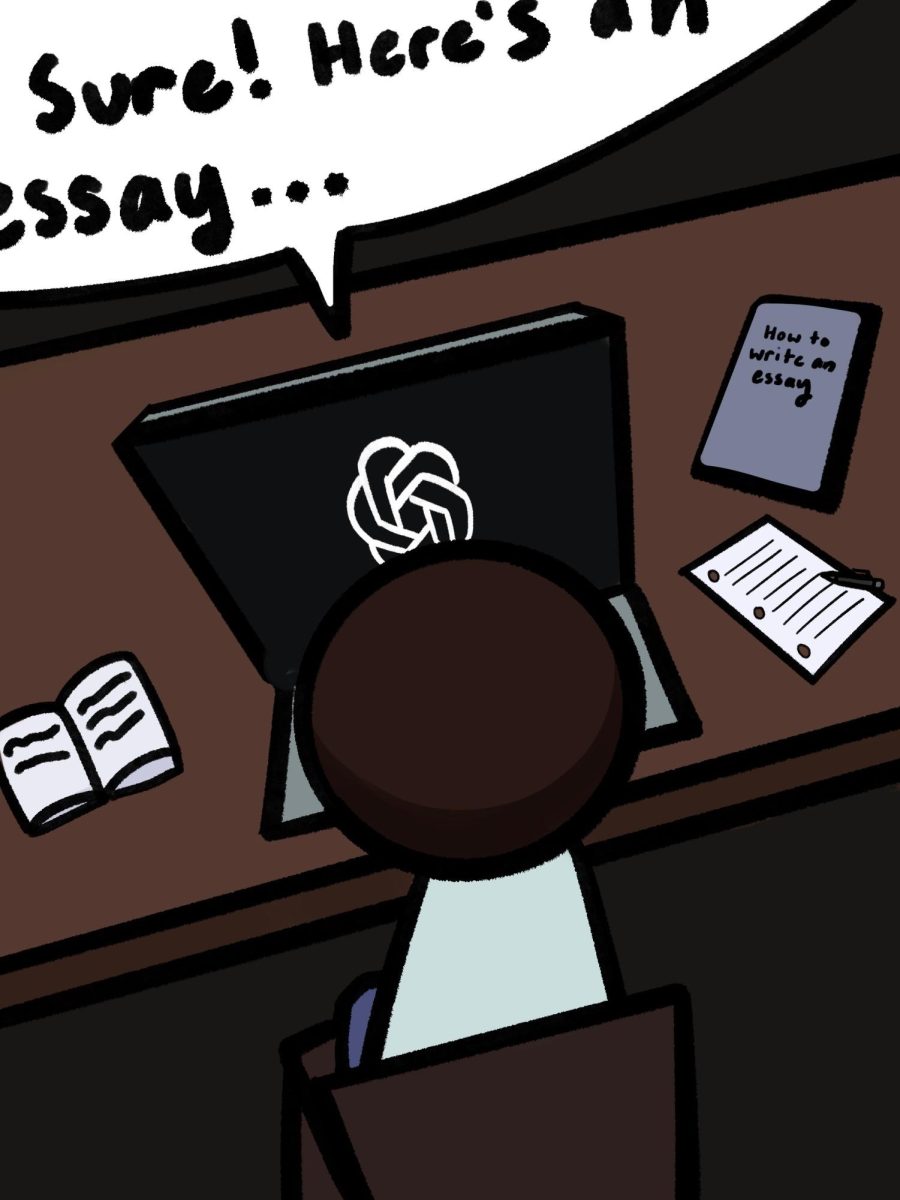
![“My parents have always said that education is important. My parents are Chinese immigrants, I'm Chinese American, [and that's a] value that has always been ingrained in our community,” said Senior Lyndia Zheng, pictured with Tony Zheng](https://bcomber.org/wp-content/uploads/2025/10/DSC_4244.jpg)


